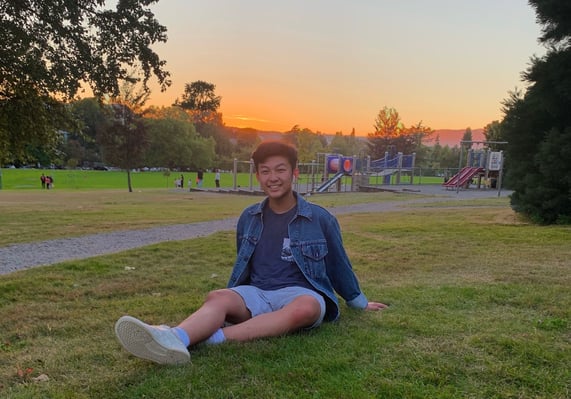While 2020 was a year defined by sweeping global events, Creative Nonfiction Competition winner Koby Chen (Canada) reminds us that it was also a year composed of small, daily moments that were no less significant than the headline-grabbing news. And, as the success of his entry proves, it’s the relatability and human-scale of these stories that often resonate most with others, too.

For this competition, we asked you to write a personal story from your 2020. How did you decide on which moment of the year to illuminate?
2020 presented a multitude of challenges to everyone, and many of those difficulties, such as the pandemic, were arguably a lot more “significant” than the one I chose to write about. However, the situation I picked had a lot more resonance to me personally, and it was one of the few occurrences of the year that I experienced viscerally in person. The moment I wrote about happened in January while I was returning from winter break in China. The reflections and embellishments I incorporated were fueled by later events in the year—especially by the increased sinophobia that followed the COVID-19 outbreak.
Your piece weaves in a description of a table that subtly yet powerfully works as an extended metaphor for how the narrator feels as an immigrant. What advice do you have for other young writers on incorporating literary devices in their work?
I would say write about whatever you have an affinity to, even if it may seem random at first! We have these weird connections to a lot of strange objects—such as a favourite spoon or an important shirt that no longer fits—and connecting these items to the intention behind a narrative is an interesting way to add symbolism, metaphor, or other literary elements. Being able to tie deeper connotations to everyday things increases the relatability and personal impact a literary device has as well.
Guest Judge Rachel Friedman praised your “matter-of-fact but compelling first sentence.” Did the first line come easily to you, or did you discover it through the revision process?
The first sentence encapsulates the sort of “begrudgingly getting into a cold pool” experience I had. I would say it came to me naturally and was just an honest description of the uncomfortable temperature of the unnecessarily air-conditioned office.
What are your writing goals for 2021?
My writing goals for 2021 are to:
- Explore new narrative structures, such as jumping between time frames or writing from the perspectives of different characters in one story, to add to the layers of a piece.
- Read more! It really does take lots of reading to find the inspiration you need to write. It’s probably bad to admit that I don’t read as much as I would like to, but I think reading is something that is overlooked in the process of writing and can seem boring or daunting at times.
- Write about different themes and ideas. Having consistency in writing is important, but I don’t want to fall back on the same genres and styles that I am comfortable with.





